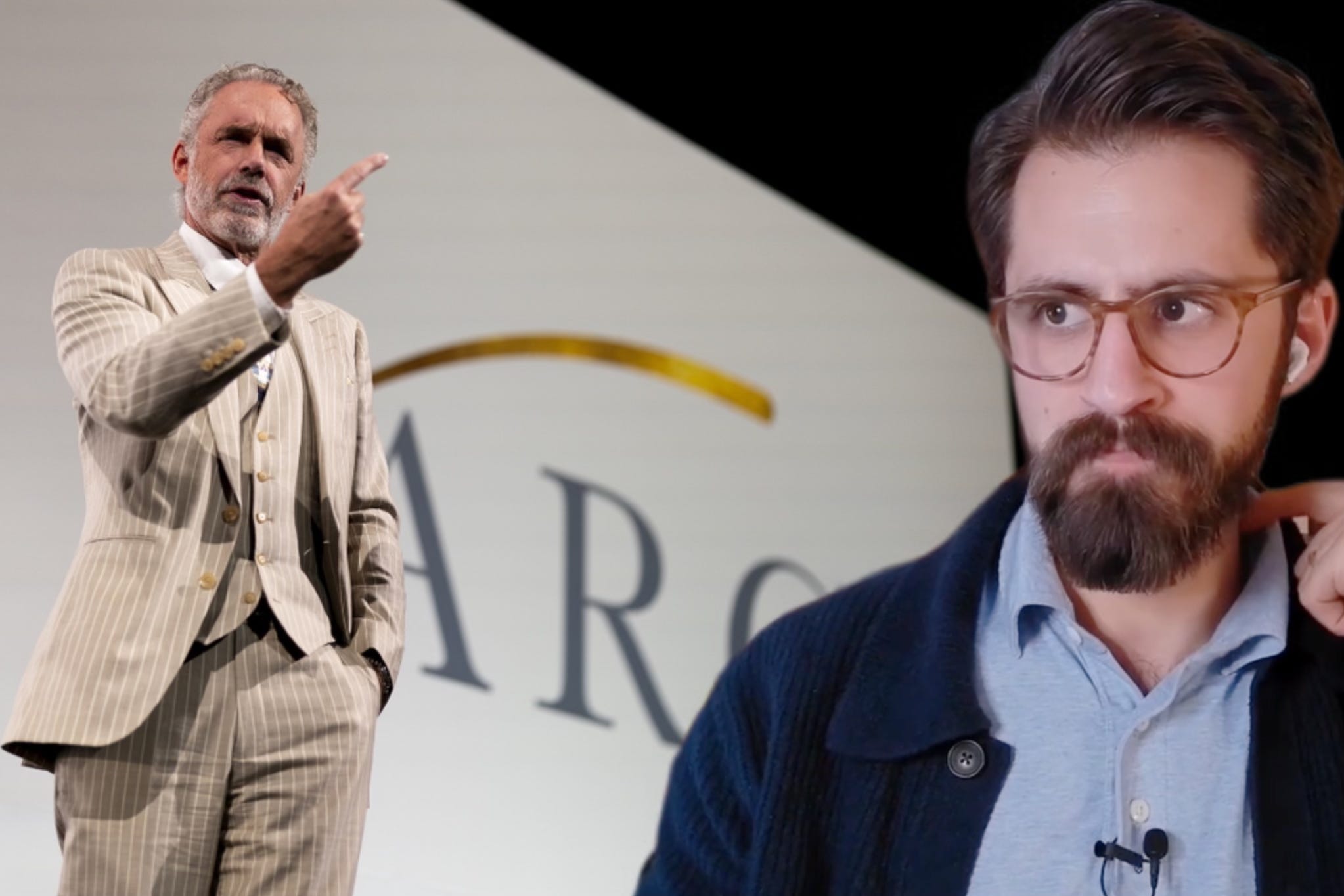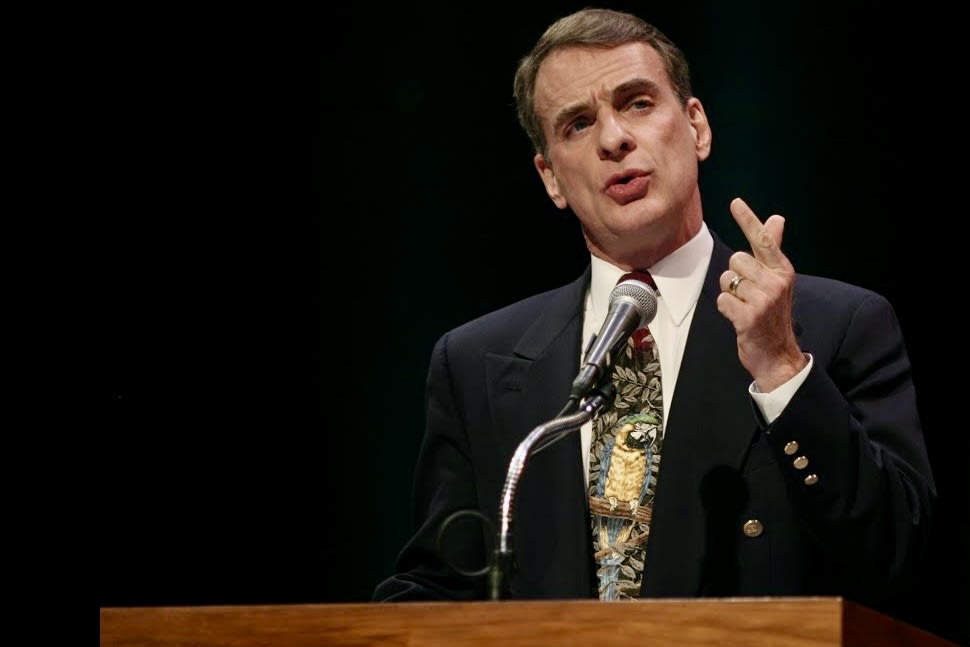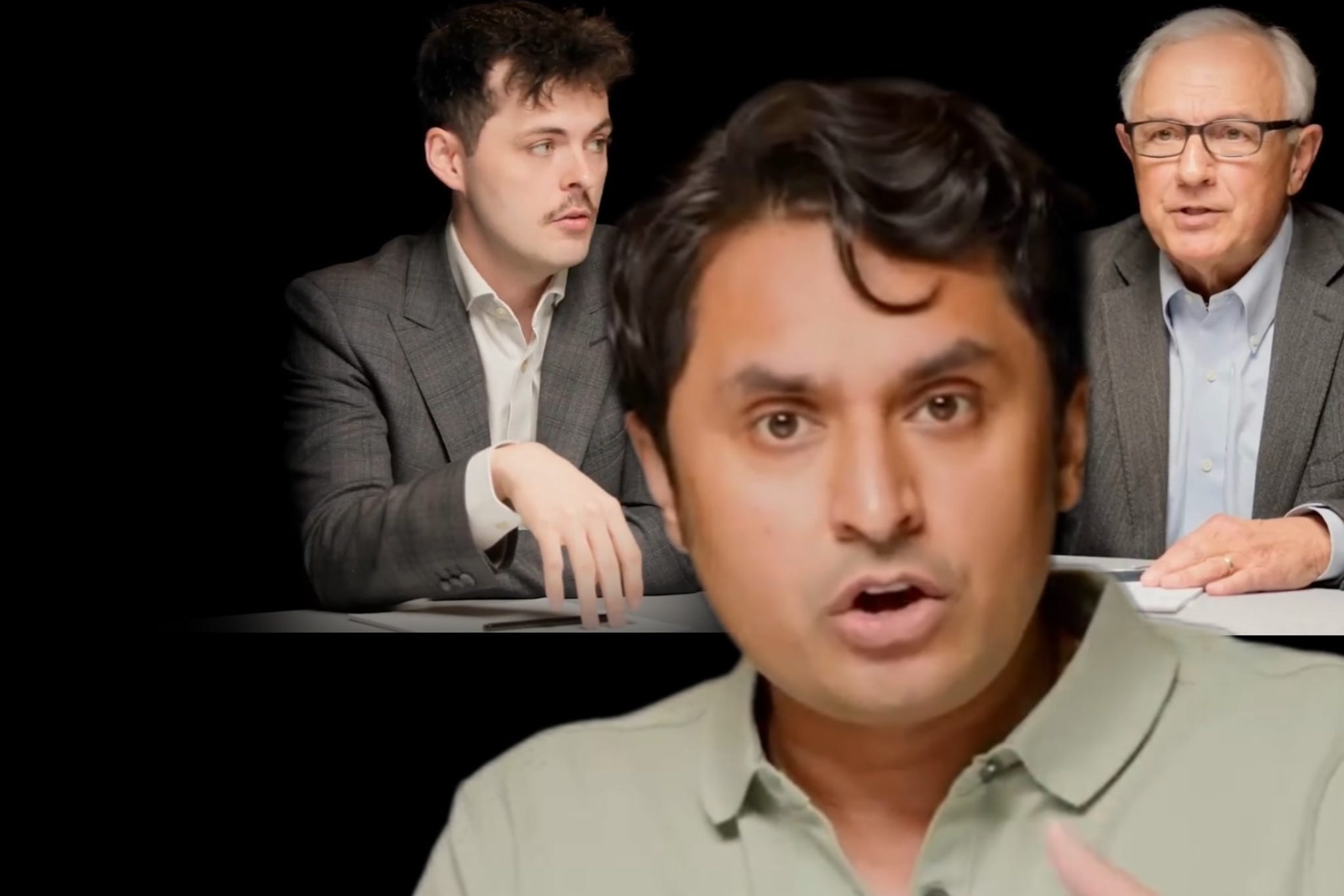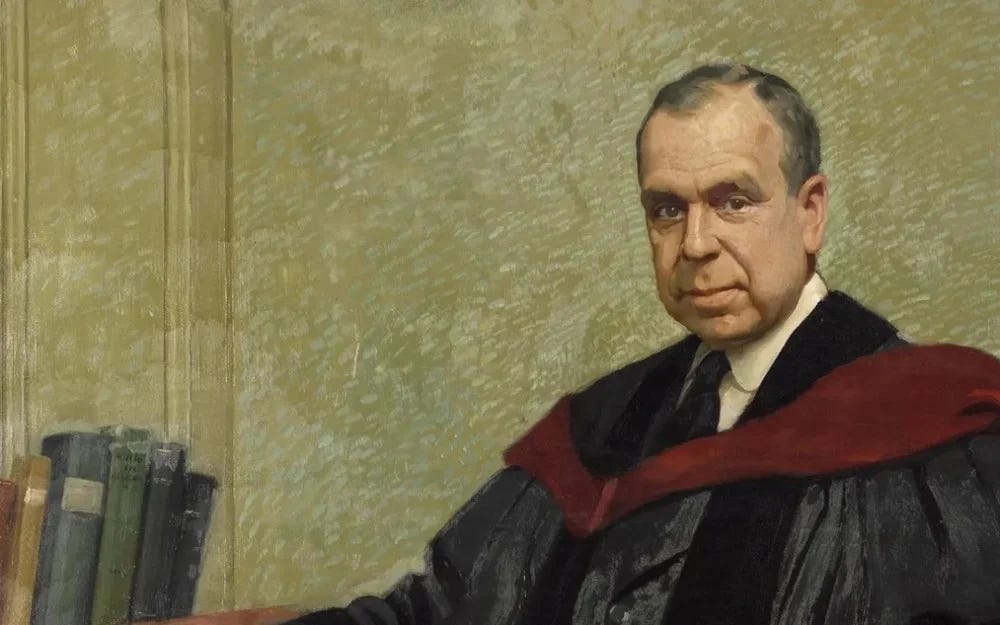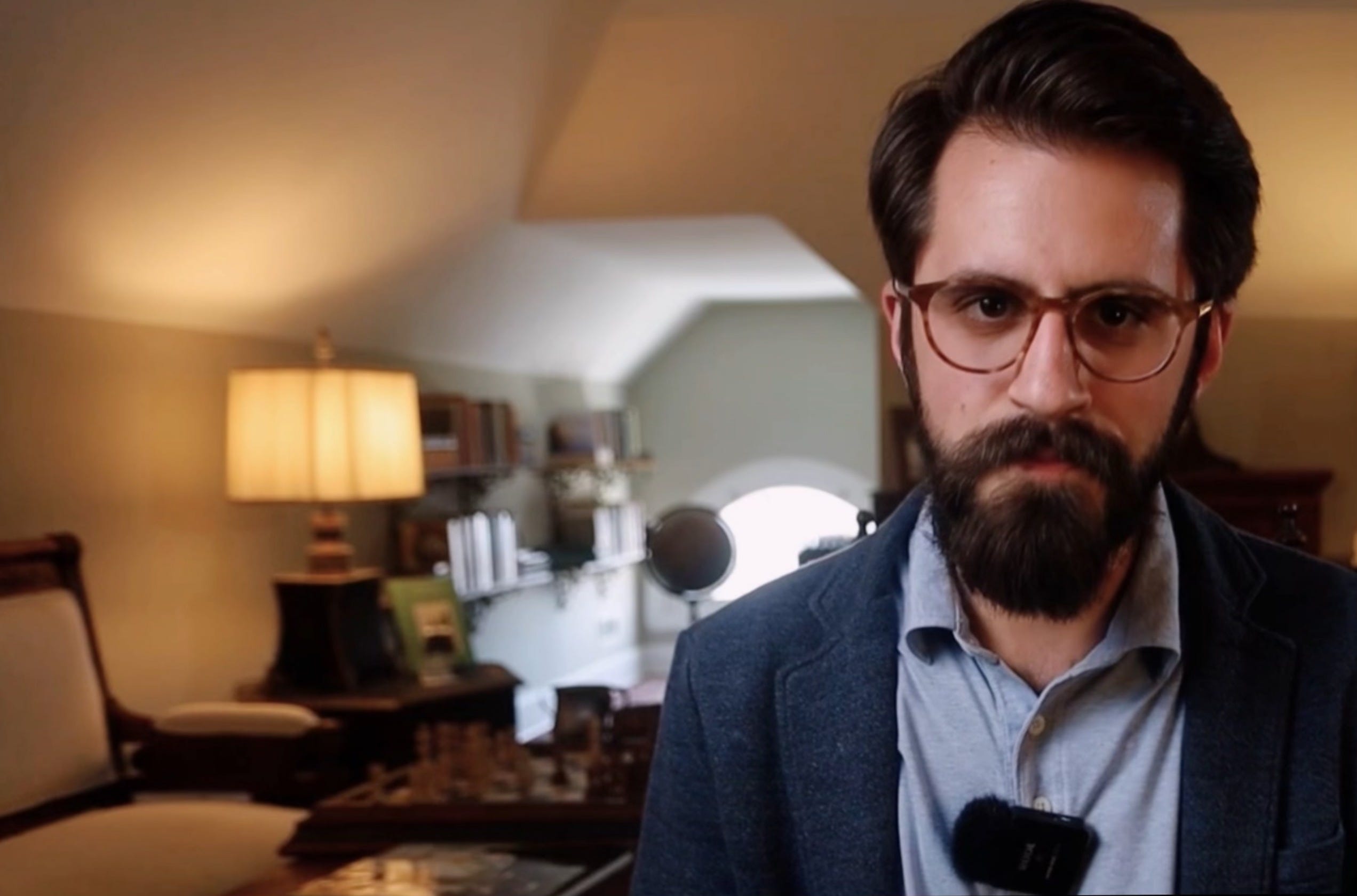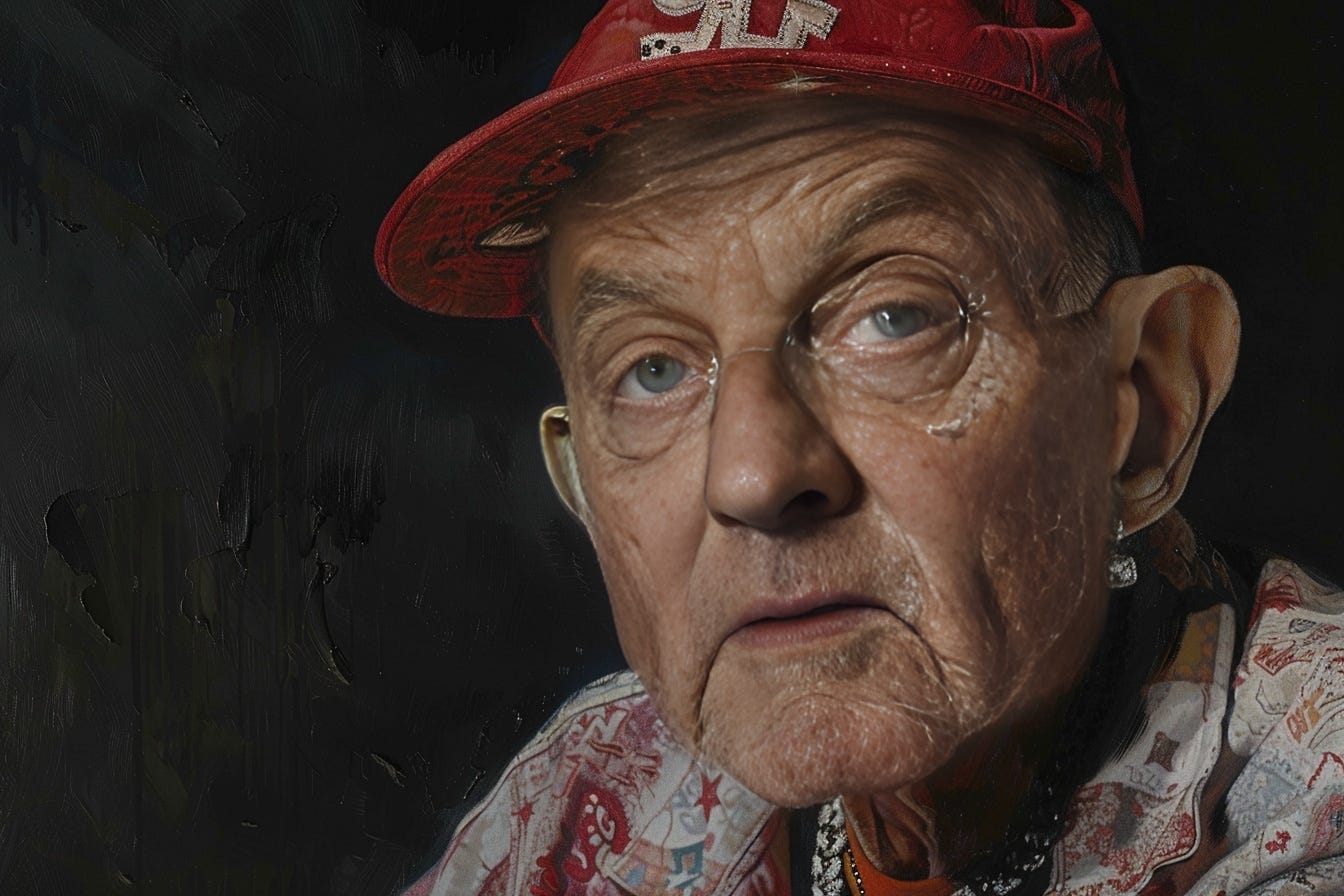Jordan Peterson's Vision of Christian Civilization
Description
Recently, Jordan Peterson spoke at ARC, the Alliance for Responsible Citizenship, his organization for international leadership. This article contains the transcript of his talk and my reaction to it, taken my from most recent YouTube video.
Hey! I’m Joel Carini, the Natural Theologian.
In this post, I'm going to react to Jordan Peterson’s speech at ARC 2025, the text of which is transcribed below.
The Alliance for Responsible Citizenship is Jordan Peterson’s sort of global policy and vision network, kind of an antidote to Davos and the elite culture. And he’s been casting his culturally Christian, conservative/classical liberal vision over last year’s and now this year’s conference.
This video just came out, so I’m gonna react and see what we can say about the philosophical and theological significance of his talk.
Jordan Peterson:
What is the defining characteristic of this civilizational moment? I would say that what lies in front of us, perhaps for the first time, is the opportunity to make the foundational principles of our civilization, conscious, explicit and propositional, and in so doing, to pave the way for a genuine and mutually appreciative union of traditional conservatism and classic liberalism.
To undertake such a venture, the first question that we must address is the nature of motivation, for life, for being and becoming. And I think we've proceeded far enough in our philosophical, theological, and psychological, biological investigations to provide an answer to that.
The default drives that motivate us, or personalities that possess us might be regarded as those that foster a narrow and self absorbed hedonism. And I would say that that's the default state that characterizes human immaturity.
That possession by implicit, fragmented whim must be transcended by a more sophisticated, uniting principle in order for the psyche to be integrated and to be sustainable across time in an iterated manner, and for community itself to exist. Hedonistic pleasure, seeking the gratification of immediate desire, the simple avoidance of pain or displeasure is not a principle that can improve when it's implemented, or unite people in productive cooperation and competition, so that a society can be established.
The dominance of the personality by local, narrow and self serving whim is not a playable or noble game, and it allies itself necessarily with the force that cynics, like the postmodernists, like the Neo-Marxists, believe is the only viable uniting force, that of power. If you're motivated by nothing but the pursuit of your own subjective desire in the moment, or your desire to avoid the necessary pain that mature conduct involves, you have to turn to power to impose your narrow will on others; because if you're dominated by the immature longing for your immediate self gratification, then it's all about you in the narrowest sense, and the only option you have in terms of your relationship with others is to turn to the force and compulsion that make them involuntary servants of your will.
We've seen forever, the dynamic between immature hedonism that fragments and that degenerates as it's played out, and the demand for the power that subjugates others to the will of the moment.
Hey, let’s stop there for a second.
Refounding Our Civilization
So the setup is giving an intellectual foundation to our civilization. And it’s really interesting because all the questions about, “Is this Christianity just cultural?” come to the fore as well as just like, “What is Jordan Peterson's project?”
He isn't bringing us back to religion kind of for its own sake in a a pietist way, to just get us close to God. It's not even narrowly psychological, for us to sort ourselves out, though that's obviously part of Peterson's program. It's for our civilization. If you think about the foundational questions that have driven Peterson, it was the Cold War. It was ideological conflict and the ability of human beings to do collective evil.
And part of that is to say that those two – psychology and politics – are connected. Like tyranny, a tyrannical state is one in which everyone is lying all the time, as Peterson says. And so very much the way that Socrates and Plato spoke in the Republic, the soul of the individual and the soul of a community are connected.
And I think that's important for those on the kind of religious side who really want Peterson to profess to be a Christian and to get other people to profess Christianity from the heart, with true piety, kind of à la Billy Graham. That's not what Peterson is about, but I think it's also a corrective that, “Isn't that too narrow a goal?”
You could think, as many do, that Peterson is instrumentalizing Christianity to political and social ends. But on the other hand, he's saying Christianity has at least to be something that can give foundation to society. Maybe it's more. Maybe it can bring you into the kingdom to come. But if it has nothing to say to the life here and now, in our political situation, what worth really is that?
Now he's really spelling out the poverty of what you could call “metaphysical liberalism.” So John Rawls is supposed to be a theorist really of classical liberalism. Rawls's liberalism was the idea that we're going to choose a society where you don't know what religion you're going to be. You don't know what your social or economic position is going to be. We're behind this veil of ignorance and we want to choose something fair for everyone.
And so it's not going to be based on any partisan doctrine. It's going to be metaphysically agnostic as to those things. And it's also going to be generally egalitarian social safety net, because if you don't know if you're going to become a poor person, you're going to want to be cared for. You're not going to want to just be blamed. We allow the kind of inequality that actually benefits everyone and especially the least well off.
Now, Rawls, early in his life was a Christian. He left behind that faith to be kind of this ethical figure spelling out political liberalism. But he never intended for [his theory of liberalism] to be metaphysical agnosticism. In response to critiques of his view, he argued that he was just after political liberalism, which is just a principle of pluralism. “Here's how we're all going to operate together, even though we don't agree on every point.” He's like, “If you can get there by thinking about natural law, as a Christian or a Muslim or a Jew. Great. That's not my foundation. If you can get there and you’re postmodernist, if you can just get there by mutual respect for other beings, great.”
But as it's played out, the lack of a coherent vision of the good or metaphysics has allowed society to become more about everyone seeking pleasure, with side constraints on your action so that you just don't hurt other people or inhibit their pursuit of pleasure. It's basically become organized hedonism, hedonism with maybe a little bit of Kantianism to respect other people's right to pursue their own hedonism.
And as Peterson is saying, that's just not adequate. We need a deeper foundation for society than that. Even the principles of classical liberalism that Rawls was for, those need a metaphysical foundation. We need to truly believe that people are ends in themselves, that humans have dignity. We need at least the mythical mythological version of the doctrine of the Image of God that Peterson is so famous for. So I want to see where he keeps going now.
He's going to have an argument against hedonism but let's just think about that setup. That seems like a very legitimate thing to be after and very necessary, especially the idea that it's time to become self-conscious as a civilization about our foundational principles.
For a long time, religious societies were very self-conscious about their foundational principles. They just thought of it as doctrine, though. They didn't think, “Well, we need this to be the foundation of civilization.” Maybe the kings and princes were thinking that way.
But there's something interesting about a society that has left that behind now saying, “Well, hold on, what do we actually need, simply in a political or pragmatic sense?” There’s a possibility for a civilization to become self-conscious of its own intellectual foundations. I'm excited for that.
Friends, my publication, The Natural Theologian, is supported by readers like you. If you want to receive new posts and support my work, consider becoming a free or paid subscriber. Thank you.
Let’s hear what Peterson has to say about hedonism:
Why is hedonism wrong? Why is power wrong? Technically, I think it's because both of those motivating forces, or sets of motivating forces, degenerate when they're iterated. You can't go through life like an immature two year old, because you can't sustain your own existence while pursuing immediate gratification in the present, and you can't sustain a society in a productive and abundant manner over the medium to long run if you use power to subordinate the will of others involuntarily to your desires. The reason that the hedonistic proclivity the fractionated, hedonistic proclivity and the drive to power are immoral is because they degenerate when they're implemented and iterated.
The skeptics, that's particularly true of the post modernists – this is the definition of post modernism. Literally, the skeptics proclaim that there's no uniting metanarrative other than that of power, and that's wrong. There is a uniting metanarrat

